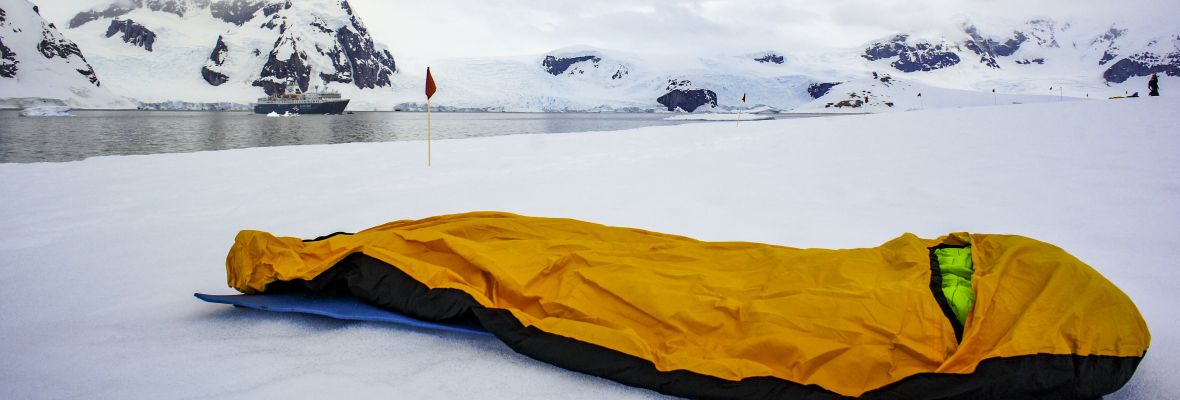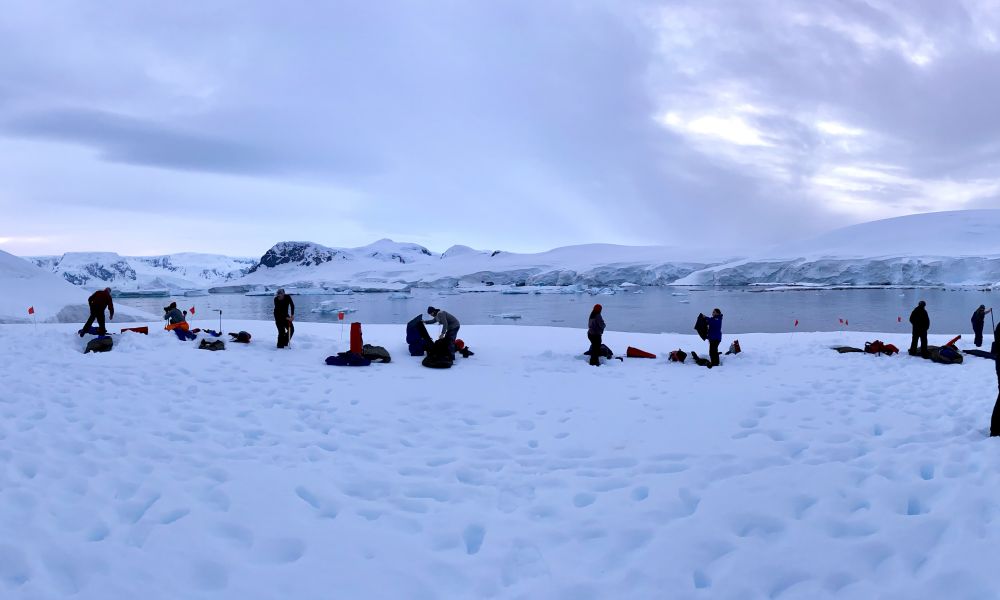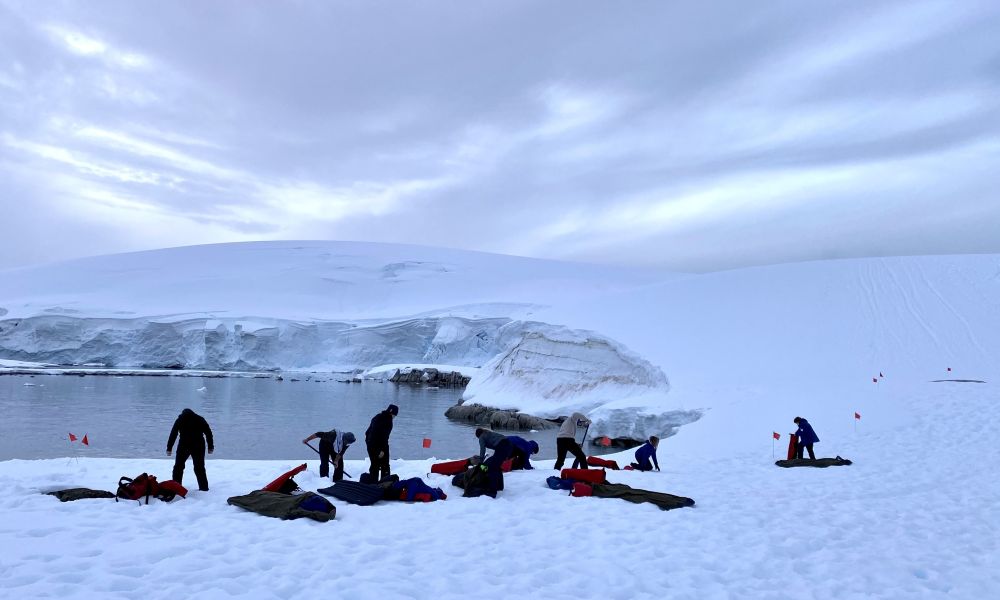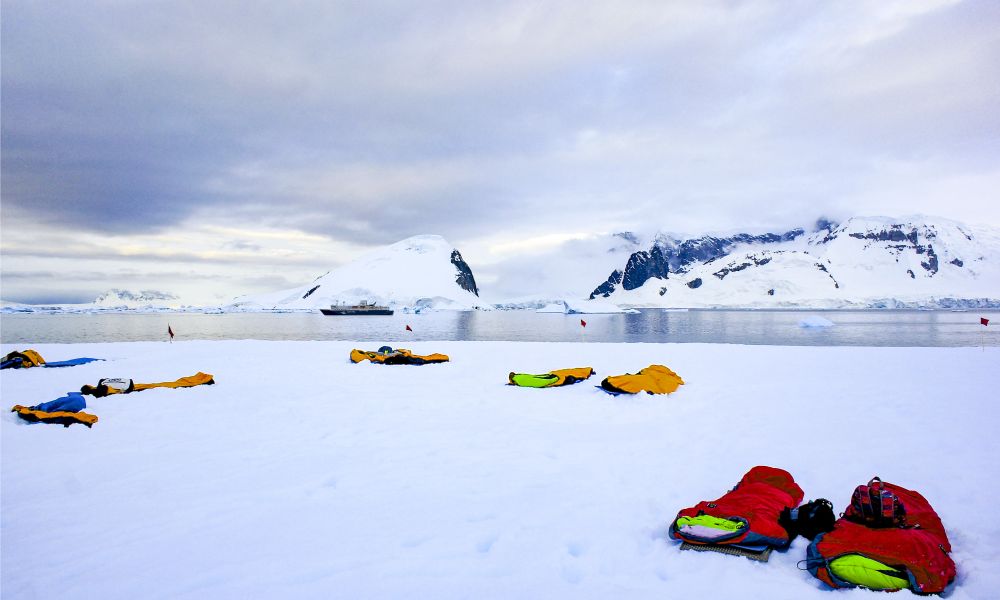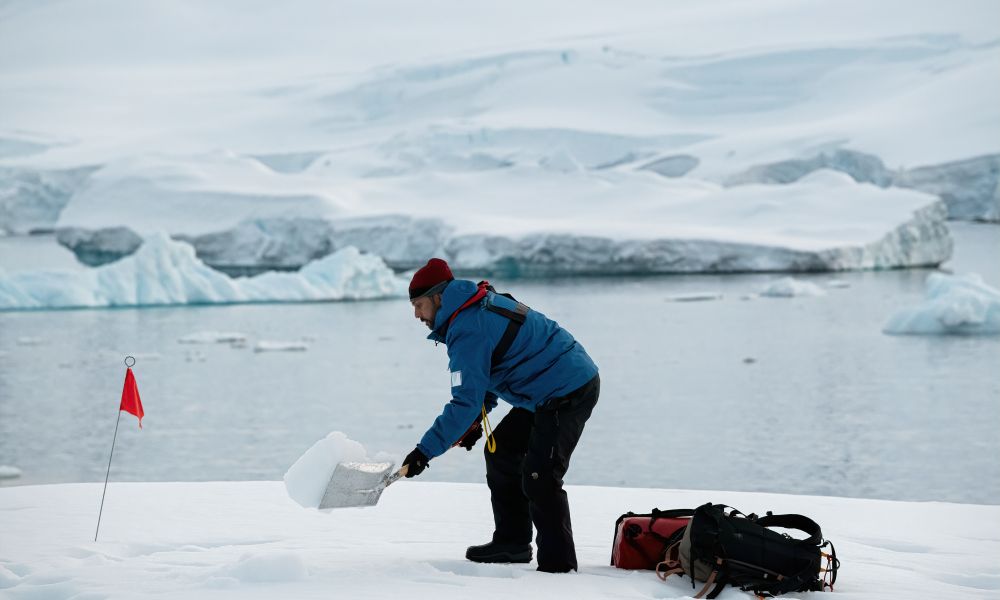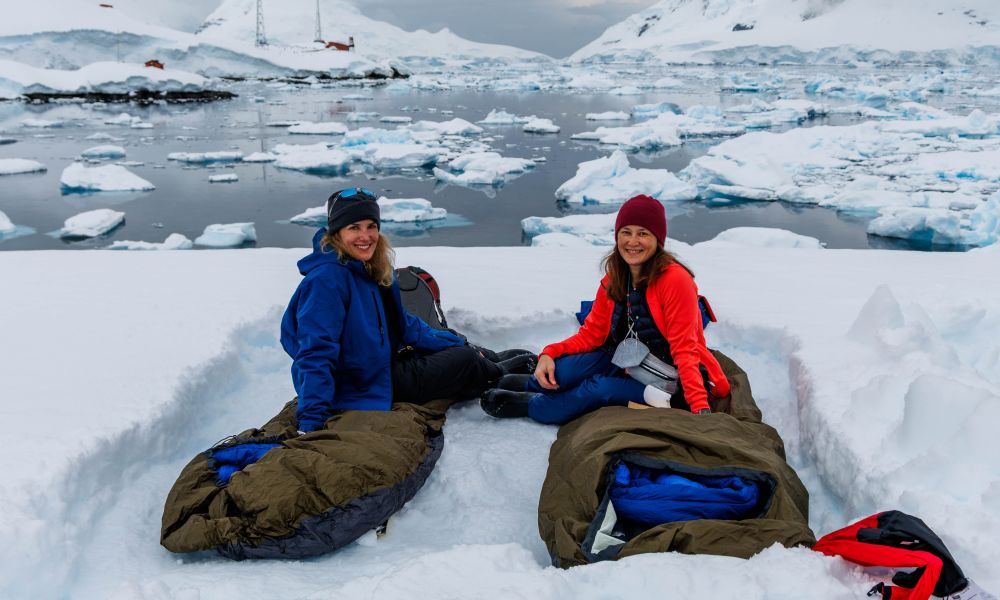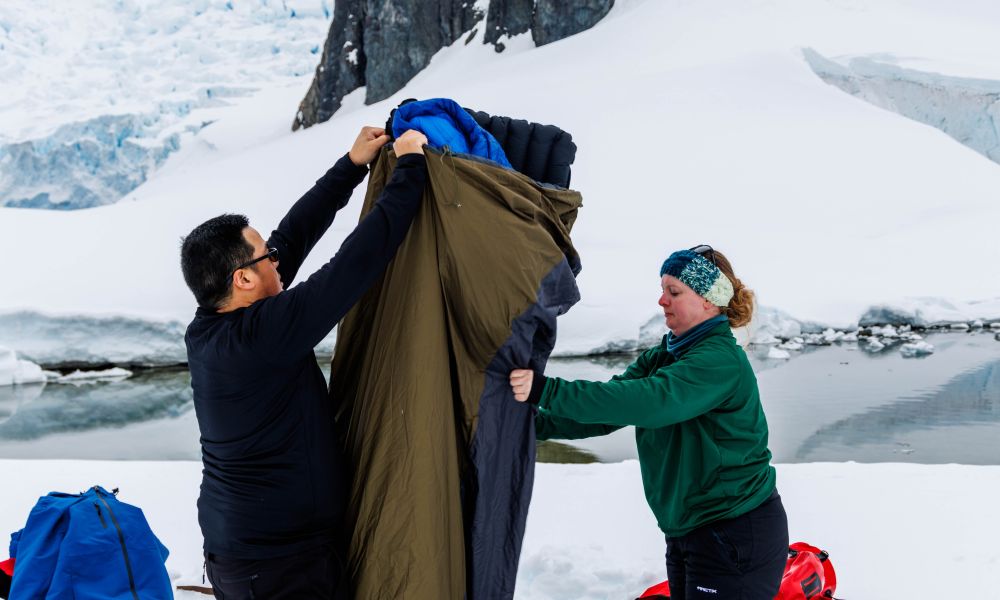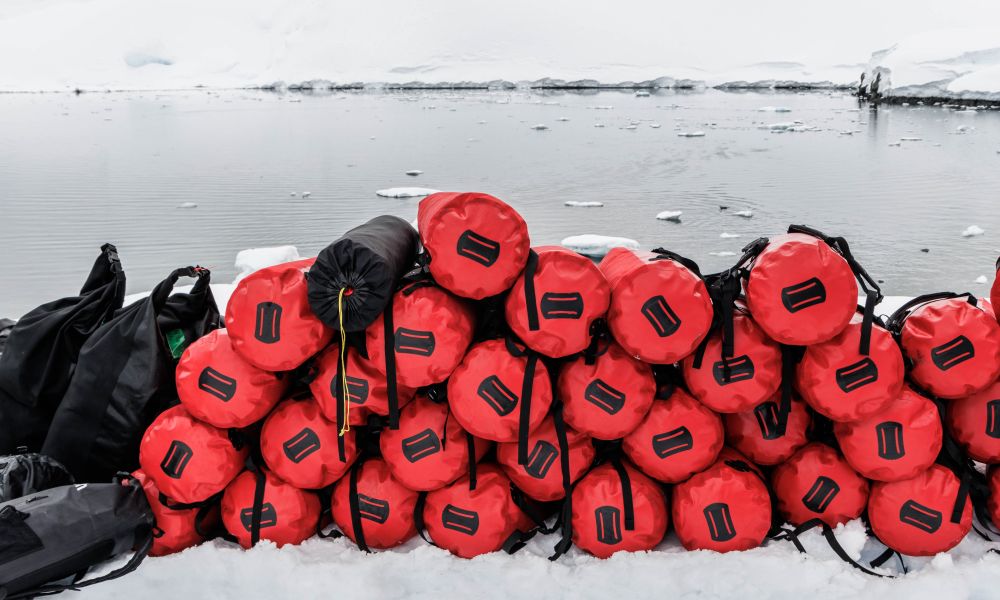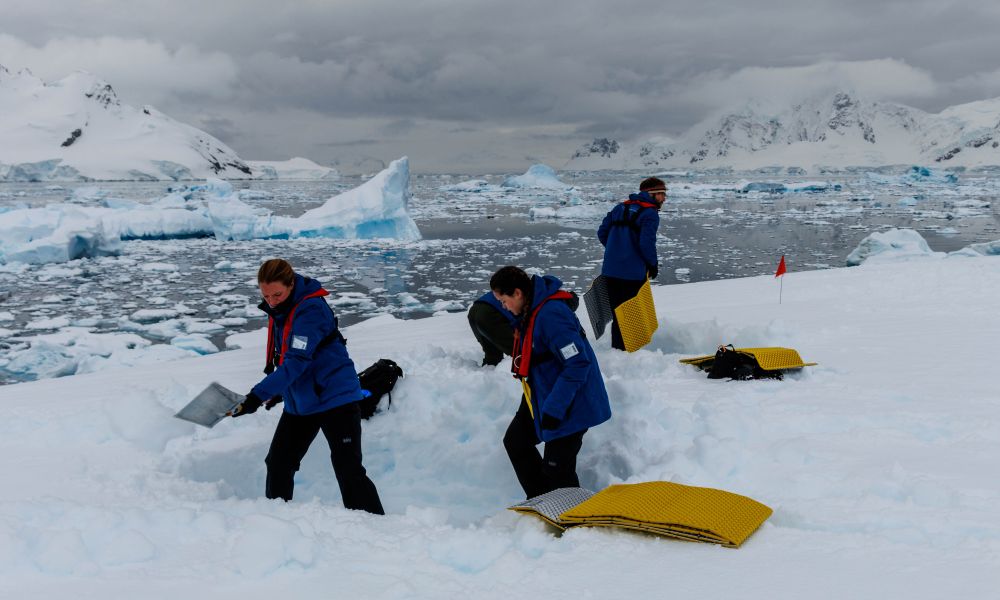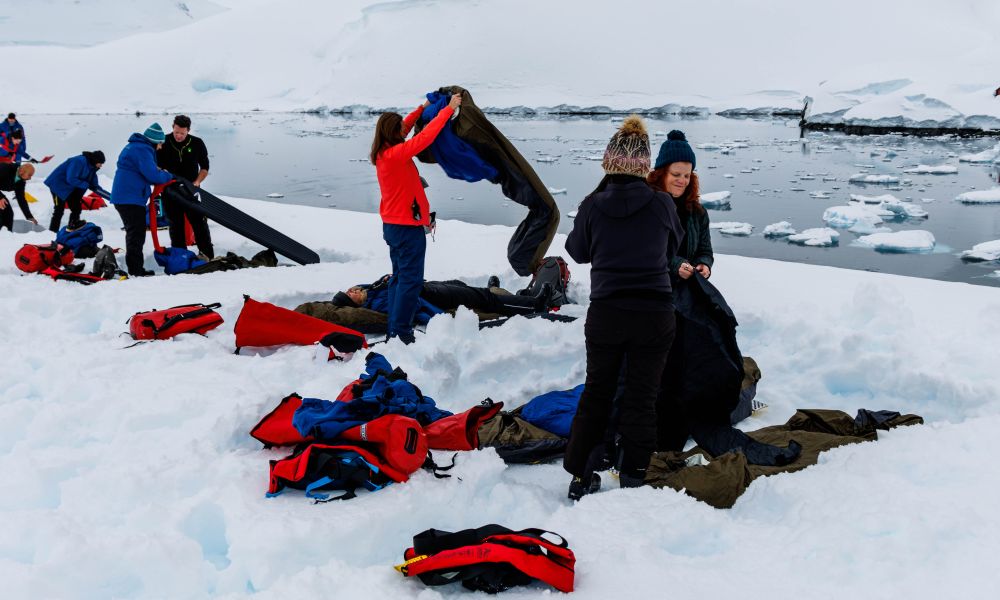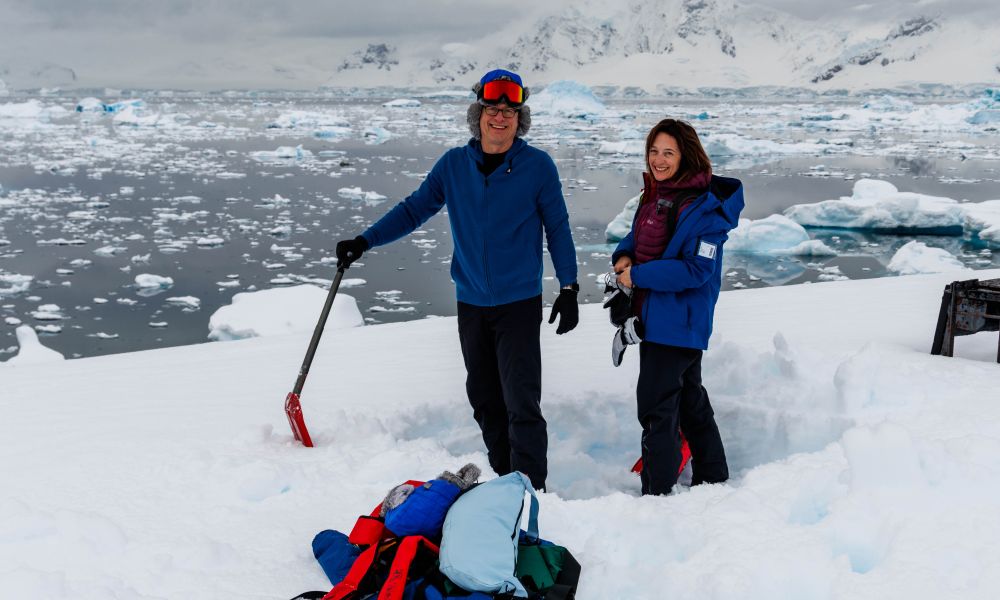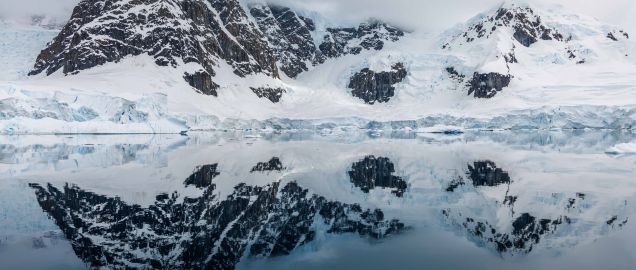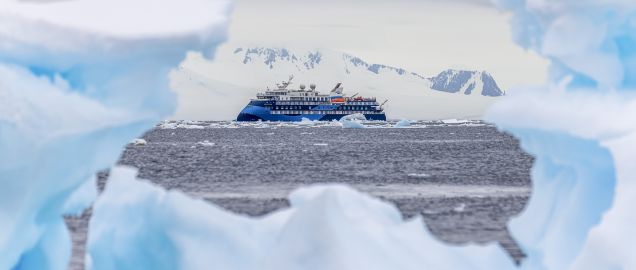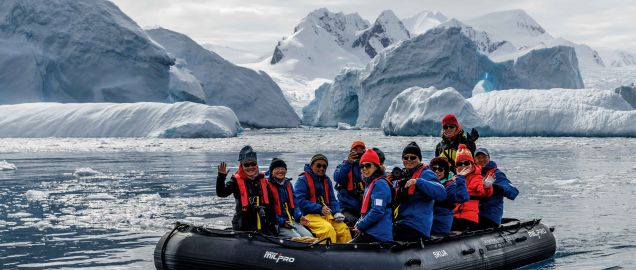We are thrilled to announce the official launch of our new website, Polar Latitudes Expeditions. Discover more in our latest news update, and visit our new website polar-latitudes.com.
Would you like to experience the ultimate Antarctic expedition adventure, like the original explorers did? Then join us for a night under the open skies on the actual Antarctic Peninsula!
Cuddled up in a warm, snug and weatherproof sleeping bag, listening to the sounds of distant whale blows, penguins’ squeaks and shifting icebergs, Antarctic Open Air Camping with Albatros Expeditions is truly a memorable experience.
After dinner onboard the ship, our expedition team will take you to shore, where you will be a part of preparing your camp for the night. Once you decide on the location within the set perimeter, you will level out your own spot in the snow, fix the base cover, insulated pad, and warm sleeping bag - and get ready for a night like no other.
Camping in Antarctica is limited to 30 participants, who all need to participate in the briefing prior to the camp activity. Albatros Expeditions provides all the special camping and bivouac gear for this outing, allowing you to stay warm, dry, and protected for all weather types while you enjoy the beauty of the Antarctic wilderness. For the ultimate camping experience, we use a wind and waterproof yet still breathable bivy bag, offering you the possibility to watch the amazing Antarctic night skies.
Our experienced expedition guides stay in constant radio contact with the ship and ensure that you have a safe and unforgettable night.
Please note - Open Air Camping is not offered during our South Georgia Voyages (any itinerary that has South Georgia included). Camping can only be offered whilst snow covers the ground, in effect this means we can only offer camping on regular Antarctic departures from October- 15. December, and select longer itineraries from 16. December - 31. January.
Facts about Open Air Camping in the Antarctic
- Antarctica



